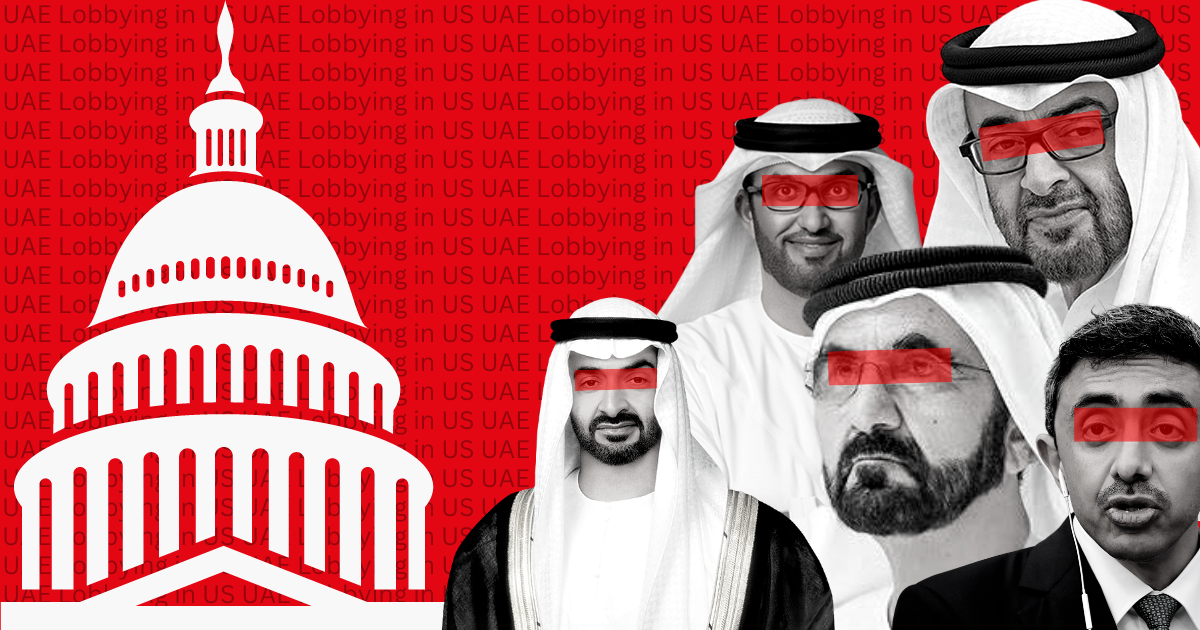According to a confidential U.S. intelligence report, the UAE has made significant attempts to sway U.S. political decisions, using both legal and illegal means. The UAE, a vital partner of the U.S. in the Middle East, seeks to influence American foreign policy to benefit its own interests. The Washington Post revealed these findings on Saturday.
A recent report revealed that the UAE exploited weaknesses in the US government over various administrations. This included making campaign donations, using lobbying firms, and taking advantage of lax disclosure laws to interfere in US affairs. The National Intelligence Council created the report, which was shared with top US lawmakers to inform their policy decisions towards the UAE and the Middle East.
According to U.S. intelligence, Russia and China have previously interfered in U.S. elections and political systems.
The federal government’s lack of reform in foreign influence laws and insufficient resources for the Justice Department have enabled these activities.
UAE Lobbying in The U.S.
The UAE has spent large amounts of money, approximately over $150 million, on lobbying and donated hundreds of millions to U.S. universities and think tanks, which produce papers supporting the UAE’s interests.
Foreign money, as demonstrated by the UAE’s significant spending, can have an impact on U.S. democracy, according to a lawmaker interviewed by the Post.
The UAE hired three ex-intelligence and military members to conduct spying on dissidents, politicians, journalists, and American businesses. These officials admitted to providing advanced hacking technology to the UAE in court last year, according to The Post. This is an instance of the UAE’s influence campaign.
The UAE has been the third-biggest purchaser of American weapons since 2012. They have also fought alongside American troops in Afghanistan, Iraq, and Syria. The Hill has contacted the Office of the Director of National Intelligence to ask for their input.
According to The Post, Yousef Al Otaiba, who is the UAE ambassador to the U.S., expressed his satisfaction with UAE’s status and power in the U.S. He believes this success is due to their strong partnership and effective diplomacy, which highlights their similar interests and values.
As per OpenSecrets, the Emirati lobby in America has got over $157 million from UAE since 2016, which makes it among the top-funded foreign lobbies in the US.
This massive amount of money has allowed companies working for Emirati interests to give high-paying contracts to ex-defense officials and ex-members of Congress, who used to represent their American voters but now work for Emirati interests. Todd Harmer, Ileana Ros-Lehtinen (R-Fla.), and Lamar Smith (R-Texas) are some examples of this.
The Emirati lobby in America spent a lot of money to persuade Congress to have closer military ties with the UAE. One company, Akin Gump, gave over $500,000 to the political campaigns of the lawmakers they contacted on behalf of the UAE.
They sometimes donated money within a few days of meeting with lawmakers, such as when Senator Todd Young had a meeting with an Akin Gump lobbyist to discuss relations between the US and UAE and then received a $5,000 donation from Akin Gump eight days later.
Key Findings
In summary, this section gives an overview of how the Emirati lobby has been trying to influence the United States. The report analyzed all the documents submitted by organizations registered to work for UAE clients in 2020 and 2021. The report found that:
- 25 organizations worked for Emirati clients during this time
- These organizations made a lot of contacts on behalf of their clients, more than similar organizations working for Saudi Arabian clients
- Emirati clients paid over $64 million to these organizations
- These organizations also made political contributions of over $1.65 million
- More than $500,000 of these contributions were given to members of Congress contacted by these organizations on behalf of their Emirati clients






